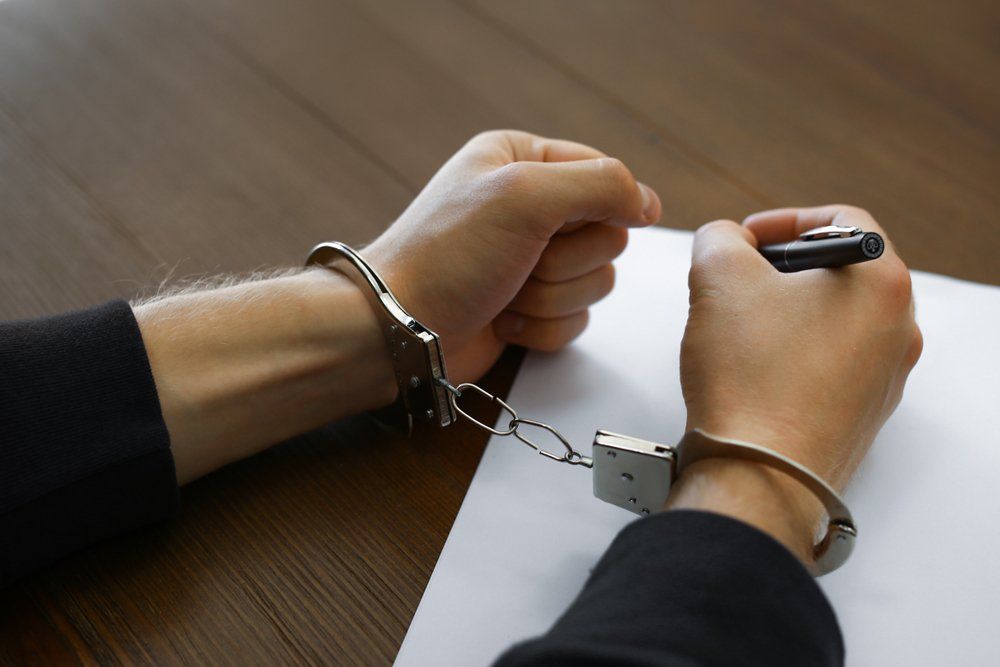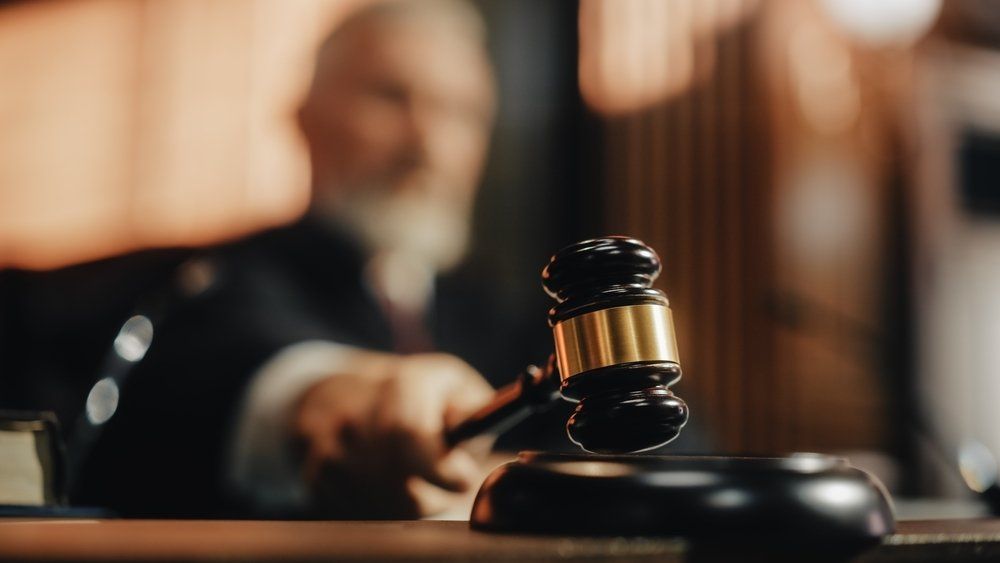8 Steps in a Criminal Case
Written by Law Office of Rolando Cantú, reviewed by Rolando Cantú
8 Steps in a Criminal Case
If you have been charged with a crime, it is important to understand the criminal process.
No one ever expects to be accused of a crime, but it can happen to anyone. For many people, being charged with a crime is a harrowing experience. The entire criminal process can be confusing and intimidating, especially if you have never been through it before. That's why an
experienced defense attorney is so important.
Here are 8 steps in a criminal case, from the initial arrest to the final verdict. Knowing what to expect at each stage can help you make better decisions for your case and give you some peace of mind during this difficult time.
How does the criminal justice system work?
Criminal law is the body of law that deals with crime and the legal punishment of offenders. The criminal justice system is the government institution that is responsible for upholding the rule of law and ensuring public safety.
The criminal justice system is comprised of three main components: law enforcement, the courts, and corrections.
When someone is facing criminal charges, they will go through all three components of the criminal justice system. Given this, it is important to understand each component and what role it plays in the criminal process. Knowing what to expect can help ease the anxiety and stress of this difficult time.
The following is an overview of the eight stages of a criminal case:
1. Arrest
The accused is apprehended and brought into custody by law enforcement. In this stage, the accused has very few rights. They will likely be read their Miranda rights, which inform them of their right to remain silent and their right to an attorney.
If the law enforcement officers have probable cause to believe that the accused has committed a crime, they can make an arrest. Probable cause is a reasonable belief that someone has committed a crime. This belief must be based on facts or circumstances that would lead a reasonable person to believe that a crime has been committed, such as an investigation or eyewitness testimony (like a victim or eyewitness to the crime).
2. Initial appearance
The defendant appears before a judge for the first time and enters a plea of guilty or not guilty. After the accused has been arrested, they will have their initial appearance before a judge. This is where the criminal charges against the accused are read and the accused enters their plea of guilty or not guilty.

In case of a civil litigation, the accused can also choose to waive their right to an attorney and represent themselves in court. However, this is not recommended as it is very difficult to navigate the court system without legal representation.
If the accused pleads guilty, they will be sentenced immediately. If they plead not guilty, the case will move on to the next stage.
3. Bail/bond hearing
A bail hearing is held to determine if the accused should be released from custody pending trial or whether bail should be set at a certain amount. In this stage, the prosecution presents evidence to the judge as to why the accused should not be released on bail. The defense can also present evidence as to why the accused should be released on bail.
The judge will then make a determination as to whether the accused should be released on bail and, if so, how much bail should be set at. Bail is money that the accused pays to the court in order to be released from custody pending trial. The purpose of bail is to ensure that the accused appears for their court date.
4. Pretrial conference
A meeting between the prosecutor and defense attorney to discuss the case and any possible plea agreements. In this stage, the prosecutor and defense attorney meet to discuss the case. They will go over the evidence and try to reach a plea agreement.

A plea agreement is an agreement between the prosecutor and defense attorney in which the accused pleads guilty to a lesser charge in exchange for a lighter sentence. Some criminal cases are resolved through plea agreements.
If the parties are unable to reach a plea agreement, the case will move on to the next stage. Some criminal defendants choose to have a trial by jury, while others choose to have a bench trial.
5. Trial
A formal court proceeding in which evidence is presented, witnesses are called to testify, and a verdict is rendered by a judge or jury. In this stage, the case will go to trial. This is a formal court proceeding where evidence is presented and witnesses are called to testify.
Some state and federal courts use juries to render verdicts. Juries are groups of citizens who listen to the evidence and testimony presented at trial and then decide whether the defendant is guilty or not guilty. In a bench trial, the judge listens to the evidence and decides whether the defendant is guilty or not guilty.
The jury will render a final verdict of guilty or not guilty or criminal charges. If the accused is found guilty, they will be sentenced in the next stage. If they are found not guilty, they will be released and the case will be over.
6. Sentencing
If the defendant is found guilty, a sentence is imposed by the court. The sentence will be based on the severity of the crime and any prior criminal history.
The sentence can range from probation to imprisonment. Probation is a sentence in which the defendant is released but must comply with certain conditions, such as meeting with a probation officer and not committing any new crimes.

Imprisonment is a sentence in which the defendant is incarcerated in jail or prison. The length of the sentence will depend on the severity of the crime. Sex crimes or drug trafficking are usually
7. Appeal
The losing party has the right to appeal the decision to a higher court for review. If either the prosecution or defense is unhappy with the outcome of the trial, they can appeal the decision to a higher court.
The higher court will review the case and decide whether to uphold the decision of the lower court or reverse it.
8. Post-trial release
The defendant is either released from custody or placed on probation after sentencing has been completed. If the defendant is sentenced to probation, they will be released but must comply with certain conditions.
If the defendant is sentenced to imprisonment, they will be incarcerated in jail or prison. After they have served their sentence, they will be released. The length of their sentence will depend on the severity of the crime.
How do criminal charges affect a person's life?
Being charged with a crime can have a major impact on a person's life. If the charge is serious, it can result in jail time, a fine, or both. A criminal record can also make it difficult to find a job or housing.
You might also want to read:
How a criminal record can impact your professional life?
For example, felony charges can lead to a prison sentence of more than one year. Misdemeanor charges can result in a jail sentence of less than one year. Some crimes can lead to both jail time and a fine.
In addition to the immediate consequences of being charged with a crime, there are also long-term consequences. A criminal record can make it difficult to find a job, get housing, or obtain a professional license. A criminal record can also affect your ability to vote, serve on a jury, or own a gun.
How can a criminal defense lawyer can help you?
If you have been charged with a crime, it is important to understand each stage of the criminal process so that you can be prepared for what lies ahead. Experienced criminal defense lawyers can guide you through each stage of your case and help ensure that your rights are protected at every step of the way.
Criminal defense attorneys can also help you understand the potential consequences of a conviction and work with you to develop a strong defense strategy.
If you have been charged with a crime, contact our
experienced criminal defense attorney today. At The Law Office of Rolando Cantu, we will work diligently to protect your rights and obtain the best possible result in your case. Our criminal lawyer in McAllen Tx can help you, providing the best legal experience and ensuring the best outcome.
Schedule a free consultation today
by calling us at
(956)-267-9898 or contacting us online.











